Introduction:
The human body is a bustling ecosystem, teeming with trillions of microorganisms that collectively form the microbiome. These microscopic companions, consisting of bacteria, viruses, fungi, and other microbes, profoundly impact our health and well-being. In recent years, microbiome research has emerged as a groundbreaking field, shedding light on the intricate relationship between these tiny organisms and their human hosts. Through advanced technologies and innovative studies, scientists are unraveling the mysteries of the microbiome and uncovering its potential implications for human health, agriculture, and the environment.
The Human Microbiome:
The collection of microorganisms on and inside the human body, including bacteria, viruses, fungi, and other microbes, is known as the human microbiome. These microscopic organisms form complex communities that inhabit various regions, such as the skin, mouth, gut, and reproductive tract.
The human microbiome plays a significant part in maintaining our health and well-being. It aids in digestion, helps synthesize essential nutrients, educates and modulates the immune system, and protects against harmful pathogens. The microbial communities in the human body are particular to each person and can be modified by genetics, nutrition, lifestyle, and environmental exposures.
Disruptions in the balance of the human microbiome, known as dysbiosis, have been associated with numerous diseases and conditions. For instance, inconsistencies in the gut microbiome have been connected to diseases, including inflammatory bowel disease, obesity, diabetes, and even mental health issues like sadness and anxiety.
Advancements in microbiome research, mainly through high-throughput sequencing technologies, have allowed scientists to understand the human microbiome better. Techniques like metagenomics, metatranscriptomics, and metaproteomics enable the analysis of microbial communities’ genetic material, gene expression, and protein profiles.
This research has led to significant discoveries and potential applications in personalized medicine. Researchers can develop targeted diagnostic tools, customized treatments, and interventions tailored to an individual’s unique microbial composition by studying an individual’s microbiome. These hold promise for more effective and precise healthcare approaches.
Additionally, the human microbiome has implications beyond human health. It plays a crucial role in agriculture and food production, as the microbiomes of plants, animals, and agricultural environments impact crop productivity, livestock health, and food safety. Understanding and harnessing the power of these microbial communities can lead to more sustainable farming practices and improved food production.
Microbes are essential in nutrient cycling, pollutant degradation, and overall ecosystem health. Furthermore, microbiome research contributes to environmental ecology and restoration efforts. Scientists can develop strategies to monitor ecological changes, conserve biodiversity, and restore ecosystems by studying the environmental microbiome.
Advancements in Microbiome Research:
Thanks to advances in high-throughput sequencing technologies, scientists can now delve into the intricacies of the microbiome like never before. Metagenomics, metatranscriptomics, and metaproteomics enable researchers to analyze microbial communities’ genetic material, gene expression, and protein profiles. These approaches provide valuable insights into the microbiome’s composition, diversity, and functionality, paving the way for groundbreaking discoveries.
Implications for Human Health:
Microbiome research has revolutionized our understanding of human health and disease. Researchers have linked specific microbial profiles to diseases like obesity, inflammatory bowel disease, diabetes, and mental health issues. This knowledge holds great promise for developing targeted diagnostic tools, personalized treatments, and interventions harnessing the power of the microbiome.
Applications in Agriculture and Food Production:
Beyond human health, the microbiome plays a pivotal role in agriculture and food production. Plant and animal microbiomes influence crop productivity, livestock health, and food safety. By studying the microbiomes of agricultural environments; scientists can optimize farming practices, enhance disease resistance in plants and animals, and reduce the reliance on chemical inputs. This knowledge opens new possibilities for sustainable agriculture and producing safer and more nutritious food.
Environmental Ecology and Restoration:
Microbes are not limited to the human body; they also shape the health and balance of ecosystems. Environmental microbiome research aims to understand the ecological roles of microorganisms in nutrient cycling, pollutant degradation, and overall ecosystem health. This knowledge helps us monitor ecological changes, conserve biodiversity, and develop strategies for ecosystem restoration, benefiting both the planet and its inhabitants.
Microbiome-Based Therapeutics:
The field of microbiome research has paved the way for novel therapeutic approaches. Probiotics, prebiotics, and fecal microbiota transplantation (FMT) are emerging interventions designed to restore or manipulate the microbiome for medicinal purposes. These treatments have great promise for treating diseases like inflammatory bowel disease, Clostridium difficile infection, and even some metabolic abnormalities.
Microbiome Research: Case Studies Unveiling the Impact on Human Health and Disease
Lean and obese people’s gut microbiomes were compared in a 2006 study that appeared in Nature. The researchers found that the microbial composition in the guts of obese individuals differed significantly from that of lean individuals. Specifically, obese individuals had a lower abundance of beneficial bacteria, such as Bacteroidetes, and a higher quantity of potentially harmful bacteria, such as Firmicutes. This finding suggested a potential link between the gut microbiome and obesity, providing insights into the role of the microbiome in metabolic disorders.
In a study published in 2013, researchers studied the gut microbiomes of individuals with ASD and neurotypical controls. They found that individuals with ASD had distinct microbial compositions characterized by reduced microbial diversity and an overgrowth of specific bacterial groups. Furthermore, the study demonstrated that transferring the gut microbiota from individuals with ASD into mice led to behavioral changes resembling ASD. This highlighted the potential influence of the gut microbiome on neurodevelopmental disorders and opened new avenues for exploring therapeutic interventions.
Clostridium difficile infection (CDI) is a severe gastrointestinal infection that can be challenging to treat. Fecal microbiota transplantation (FMT) involves transferring fecal material from a healthy donor to a recipient’s gastrointestinal tract to restore a healthy microbial balance. FMT has proven to be an effective cure for recurrent CDI. A randomized controlled trial published in 2013 demonstrated that FMT resulted in a significantly higher CDI resolution rate than antibiotic treatment alone. This study showcased the therapeutic potential of manipulating the microbiome to treat certain diseases.
Atopic dermatitis, a chronic inflammatory skin condition, has been linked to alterations in the skin microbiome. A study published in Science Translational Medicine 2019 investigated the microbial communities on the skin of individuals with atopic dermatitis and healthy controls. The researchers found that the two groups’ microbial diversity and composition differed. Moreover, they identified a beneficial bacterium, Roseomonas mucosa, reduced in individuals with atopic dermatitis. This finding suggested a potential role for targeted probiotic therapies to restore microbial balance and alleviate symptoms of the condition.
Conclusion:
The microbiome study has transformed our understanding of the invisible world within us and its impact on our lives. Microbiome research is at the forefront of scientific discovery, from unraveling the links between the microbiome and human health to revolutionizing agriculture and environmental restoration. As technologies continue to advance and our knowledge expands, the insights gained from studying the microbiome will undoubtedly shape future innovations, paving the way for personalized medicine, sustainable agriculture, and a healthier planet.
In conclusion, microbiome research has ushered in a new era of understanding the intricate relationship between microbial communities and human health. Advanced high-throughput sequencing technologies have allowed researchers to explore microbiomes’ composition, diversity, and functionality with unprecedented depth. Through notable case studies, we have seen how the gut microbiome is linked to obesity and neurodevelopmental disorders like autism. Fecal microbiota transplantation has demonstrated its efficacy in treating Clostridium difficile infection. Furthermore, investigations into the skin microbiome have provided insights into conditions like atopic dermatitis. These findings highlight the potential for personalized medicine approaches, targeted interventions, and innovative therapeutics harnessing the power of the microbiome. As the field progresses, microbiome research holds great promise for revolutionizing healthcare, agriculture, and environmental conservation, ultimately leading to improved well-being for individuals and our planet.



